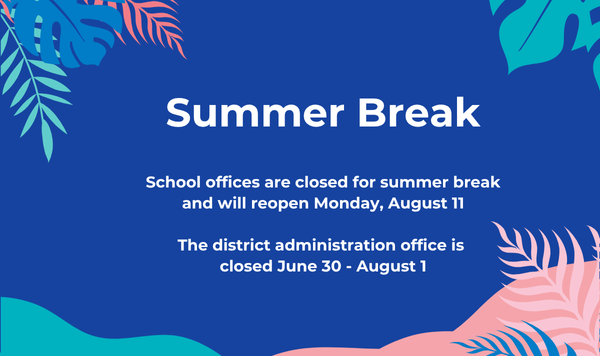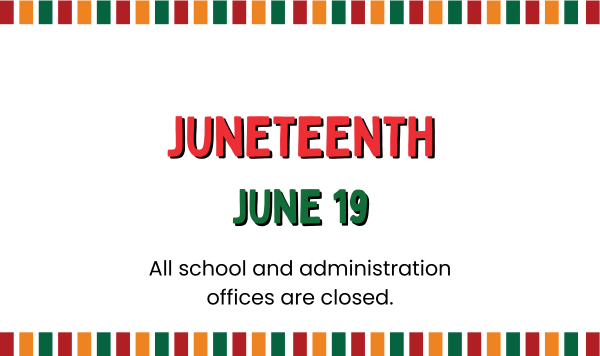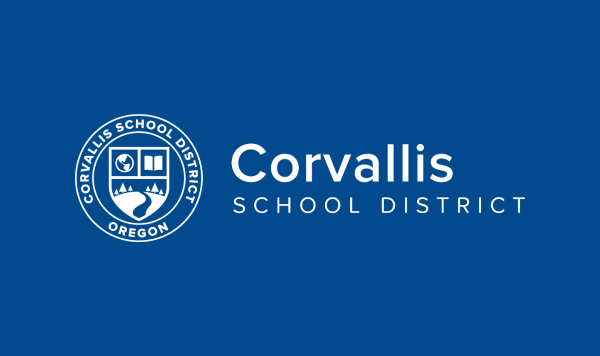Important News
Corvallis School District closed for summer break
Superintendent’s Education Update: Sustainability Update
Update provided by Kevin Bogatin, Assistant Superintendent
In 2017-18, a sustainability task force was convened to determine how best to implement sustainability systematically throughout the district. Recommendations included setting up systems to support and expand on-going sustainability practices, changing the culture of the district to incorporate sustainability into all aspects of district work and to ensure that sustainability values guide future decisions, and engaging with programs that provide recognition and support for sustainability work in school districts.
This Education Update provides information about sustainability related activities taking place in the Corvallis School District this year.
Sustainability Strategic Plan
The Corvallis School District is committed to a culture of sustainability through concerted efforts to align programs for students and staff, such as recycling, energy conservation, equity, and wellness with our financial and educational goals.
In September the district entered into an agreement with Brendle Group, a team of sustainability planners, engineers, and communications specialists from Fort Collins, Colorado to facilitate the development of a Sustainability Plan tailored to our district. The goal is to create a robust Sustainability Plan that supports the institutionalization of sustainability into district policies, practices, and procedures to meet the expectations of the district and community including all three components of triple bottom line sustainability (economic, social, and environmental).
Assistant Superintendent Kevin Bogatin is the lead on this plan. Work with Brendle Group kicked off in September 2018 and will extend through April 2019 and will include the following phases:
Phase 1: Sustainability Baseline
Brendle Group and district staff have been working collaboratively to examine existing sustainability goals and policies and look at relevant sustainability data, reports, and studies. In addition, Brendle Group is examining community-wide efforts including the City of Corvallis Climate Action Plan that was adopted by City Council in 2016 and the Corvallis Sustainability Coalition Action Plan that was developed in 2008 and revised in 2013. Finally, a survey will be designed to collect information about current sustainability efforts and will solicit feedback about current sustainability efforts and perceived effectiveness. This task will conclude with a State of Sustainability Memorandum that will summarize current conditions and illuminate common themes related to opportunities and potential improvements.
Phase 2: Sustainability Vision, Focus Areas, and Goal Setting
An outline for the Sustainability Plan will be developed. The outline will be informed by the information compiled in the baseline assessment and will provide a sound foundation for developing strategies to achieve goals. Focus areas are likely to include energy and water conservation, facilities and construction, food and waste, and transportation. The plan will be developed and refined during an onsite visit by Brendle Group consultants.
Phase 3: Strategy Identification
Building on the outline and goals established in Phase 2, we will work with Brendle Group to identify sustainability strategies to support each goal. Strategies will be identified that will result in implementable and measurable actions that will help us achieve our sustainability goals. This will likely include a second site visit by Brendle Group to prioritize strategies based upon stakeholder feedback and discuss implementation details to inform the development of a more robust plan. In addition, this process will include broader stakeholder engagement, inclusion of multiple viewpoints, and refining strategies to achieve buy-in that is critical to successful implementation.
Phase 4: Strategy Analysis
Strategies will be organized and grouped for analysis. This will include a high-level triple bottom line evaluation considering potential economic, environmental, and social impacts/benefits such as cost competitiveness, greenhouse gas emissions reduction potential, and public support. The evaluation will include high-level quantification of impacts where possible, supplemented with qualitative assessment as applicable.
Phase 5: Sustainability Management Plan
The Sustainability Management Plan will integrate the work completed in earlier phases. The plan will include the development of a robust implementation tracking system and will establish an annual process for reviewing progress and incorporating input. This phase will also include an organizational and structural assessment to identify the best potential pathways for success.
Update on Current Progress
We are near completion of the Sustainability Assessment that includes the process of developing a staff survey and we are examining the need for a community survey. The first Brendle Group on-site visit and workshop with district sustainability leaders will take place in January 2019 and will include an opportunity for community-wide engagement. A second visit will be scheduled in February 2019 that will focus on developing strategies for our district and including our culturally and linguistically diverse community.
Strategic Energy Management
The Corvallis School District is participating in the Energy Trust of Oregon’s Strategic Energy Management (SEM) program. The district joined the SEM program in 2017 and established goals including actively promoting and pursuing the efficient use of resources and cost savings. The district completed an energy management assessment of three schools, Corvallis High School, Linus Pauling Middle School, and Jefferson Elementary, and adopted a pilot energy action plan and guidelines. Projects included the following:
- Implemented building space schedules at CHS and LPMS to consolidate conditioned zones, reducing the amount of energy resources required for heating and cooling
- High Efficiency Equipment replacement at CHS; four boilers and two hot water heaters
- High Efficiency Boiler replacement at LPMS
- Repaired energy recovery units serving the main gym heating and ventilation systems at LPMS and Jefferson Elementary
We are now in our second year and recently completed a review of 2018-19 goals. Some of the draft goals include enrolling three additional schools in the program (Adams, Cheldelin, Crescent Valley), continue staff training for facilities staff, and ensuring that the district-wide sustainability plan includes an energy component. Custodial and Operations manager Mike Holden is the lead on this effort.
Site-Based Sustainability Leadership
School Sustainability Leaders (SSL) from all schools met last month to report on what is happening in their building. These individuals support student, staff and parent/guardian efforts to make the school’s operations and activities more environmentally sustainable. With support and guidance from district leadership, Facilities and Maintenance Department, and the school principal, the SSL’s work is focused on the following:
- Reducing the use on non-renewable resources (i.e. fossil fuels, metals and minerals)
- Reducing energy consumption
- Increasing the school’s rates of recycling and composting
- Facilitating efforts to protect local ecosystems and habitats
- Promoting environmental sustainability throughout the school community.
At their October 25, 2018 meeting, the group discussed their ideas for the 2018-19 school year. One area of agreement for all schools is the Oregon Green Schools certification. All schools are involved in this process and are engaging high school student leaders in this work. Assistant Superintendent Kevin Bogatin is the lead on this effort.
Real-World Learning
The district currently supports a variety of sustainability-related outdoor education opportunities for students. Examples are Outdoor School and the Benton Soil and Water Conservation District’s Salmon Watch program. This is an experiential field trip that teaches youth about salmon and healthy watersheds. In addition, students from College Hill are trained to lead some of the educational stations.
All 5th grade students participated in both programs this fall. The district is committed to providing this type of real-world learning opportunity and this year’s program was also supported by an Educational Equity fund, supported by PTA/PTO groups district-wide. Teaching and Learning Coordinator Amy Lesan is the lead on this work.
Bond Program Sustainability Design Guidance
The district leveraged our new relationship with Brendle Group to facilitate the development of guidelines for the design guidance teams for the bond program. A series of questions were developed to ensure that design guidance team members consider the environmental, social, and economic impacts of bond design decisions. Categories include energy, water, facilities, transportation, food and waste, and economic impacts. The full guidelines are available HERE. Facilities and Maintenance Director Kim Patten is the lead on this work.
Questions about the district’s sustainability planning may be directed to Assistant Superintendent Kevin Bogatin at 541-757-4700.


